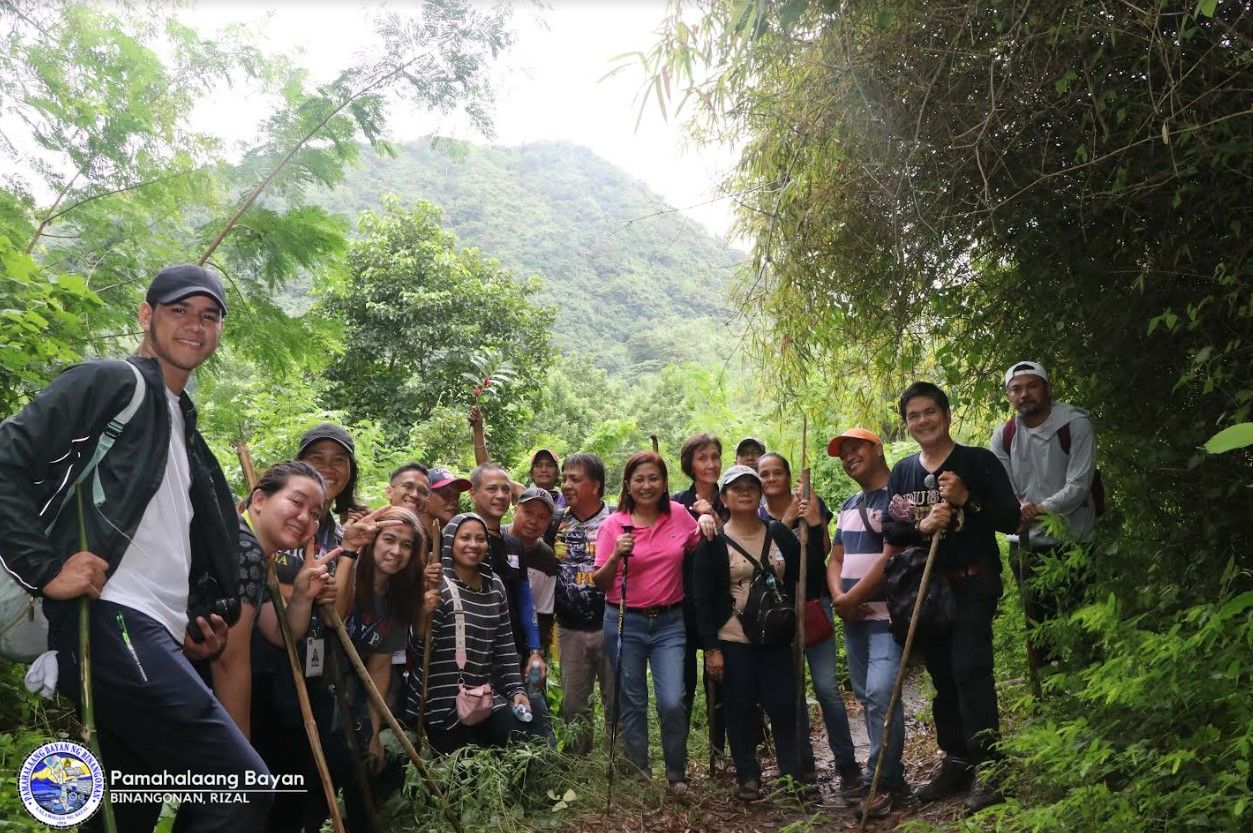BINANGONAN, Rizal – Consistent with the Department of Trade and Industry’s “One Town, One Product” priority stimulus program for Micro, Small and Medium-scale enterprises (MSMEs), the local government is hell-bent on utilizing a vast tract of land in Talim Island for they propagation of bamboos.
Municipal Administrator Russel Callanta Ynares revealed that they are seriously considering Community-Based Forest Management (CBFM) for the project which according to him will effectively transform their island barangays as a major source of bamboo and its byproducts.
Sometime in October, the local government, together with the Philippine Bamboo Foundation, Office of Congressman Jack Duavit, DTI, the Department of Environment and Natural Resources (DENR), and the Department of Tourism (DOT) went to Talim Island to launch the Talim Island Bamboo Project.
Under the project, Ynares cited potential economic, environmental, and social benefits of the project, which he claimed would provide livelihood and effectively make Binangonan a contender in the much-coveted title of being the country’s Bamboo Capital.
“If the DENR doesn’t approve CBFM, perhaps a Forest Land Use Agreement would be an option. Or maybe other forms of tenurial instruments. It all depends on the DENR recommendations,” Ynares told OpinYon Rizal.
Even before the project launch, Talim Island residents have long been making a livelihood by selling bamboo huts, which come in many variations – from the conventional type to the so-called modern bahay-kubo.
One Town, One Product
Coined from Japan’s One Village, OTOP is a government’s customized intervention to drive inclusive local economic growth. The program enables localities and communities to determine, develop, support, and promote products or services that are rooted in its local culture, community resource, creativity, connection, and competitive advantage.
As their own ‘pride-of-place,’ these are offerings where they can be the best at or best renowned for. It endeavors to capacitate our ‘OTOPreneurs’ to innovate and produce market-ready products and services.
As for Binangonan, Ynares hinted at the LGU’s effort to make the lakeshore municipality a major depot for bamboo and its byproducts, specifically bamboo huts.
Pending Senate Bill
Meanwhile, the Senate has yet to act upon Senate Bill 605 (Act Institutionalizing the Philippine Bamboo Industry Development Program) after the House of Representatives approved its version of the proposal.
According to Philippine Bamboo Industry Development Council (PBIDC) executive director Renne Madarang, they have already sent a letter to Senate President Juan Miguel Zubiri, asking that more stakeholders be allowed to physically attend hearings on the “Bamboo Bill” as a means of rallying support for its approval.
Madarang said that the stakeholders want to show support for the immediate passage of the bill seeking to provide fiscal incentives to investors engaged in the cultivation and processing of bamboo into high-value finished products.
Compelling Bamboo Use
Madarang said SB 605 will also serve to fortify the PBIDC’s policy-making role in creating community-based enterprises that will have sufficient supply of quality materials and produce new products from research and development-inspired technologies.
If passed, furniture manufacturers will be mandated to use bamboo on at least 25 percent of their raw materials inputs, as part of an aggressive campaign to promote bamboo as an alternative to hardwood.
Additionally, bamboo plantations will be accepted as loan collateral in government-owned and controlled financial institutions, while plantation developers and bamboo processors will have priority access to credit and guarantee.
Bamboo plantations will be exempted from security cutting, harvesting, and transporting permits, he added.
“Developing the bamboo industry will not only help investors but it promises steady economic benefits to planters as well,” he said.
Sustainable Forest Reserve
He cited as an example the two bamboo nurseries in the municipality of Rodriguez (formerly Montalban), Rizal province, which are already providing income to members of the Dumagat tribe, thanks to a partnership between the PBIDC and the Rotary Club.
The Dumagats are paid regular wages for growing the bamboo propagules in the nursery, and eventually transplanting them to denuded areas within the Marikina Watershed, as part of reforestation efforts to support the watershed’s continued viability, said Madarang.
Zubiri, who authored SB 605, said that the Bamboo law enactment “will create among the biggest agriculture industries in the country.”
The bill is touted as being aligned with the Marcos administration’s aim to “speed up economic development, create livelihood, and cushion vulnerable poor populations from climate disasters.”
Thriving Bamboo Industry
“There is a lot of potential in the local bamboo industry. Currently, we are the fifth largest bamboo exporter in the world. With smart planning and malasakit, especially to our bamboo planters, the Philippine bamboo industry could be a behemoth a few years down the road,” Speaker Martin Romualdez said in a statement after the approval of House Bill 7941 in May.
Under the measure, the PBIDC shall be tasked to create the Philippine Bamboo Industry Development Program, to include plans of actions and projects for the scientific propagation, development and management, processing, utilization, business development, and commercialization of Philippine bamboo and bamboo products.
#OpinYonRizal #TalimIsland #DTI #OTOP #MSMEs #OpinYon #WeTakeAStand
